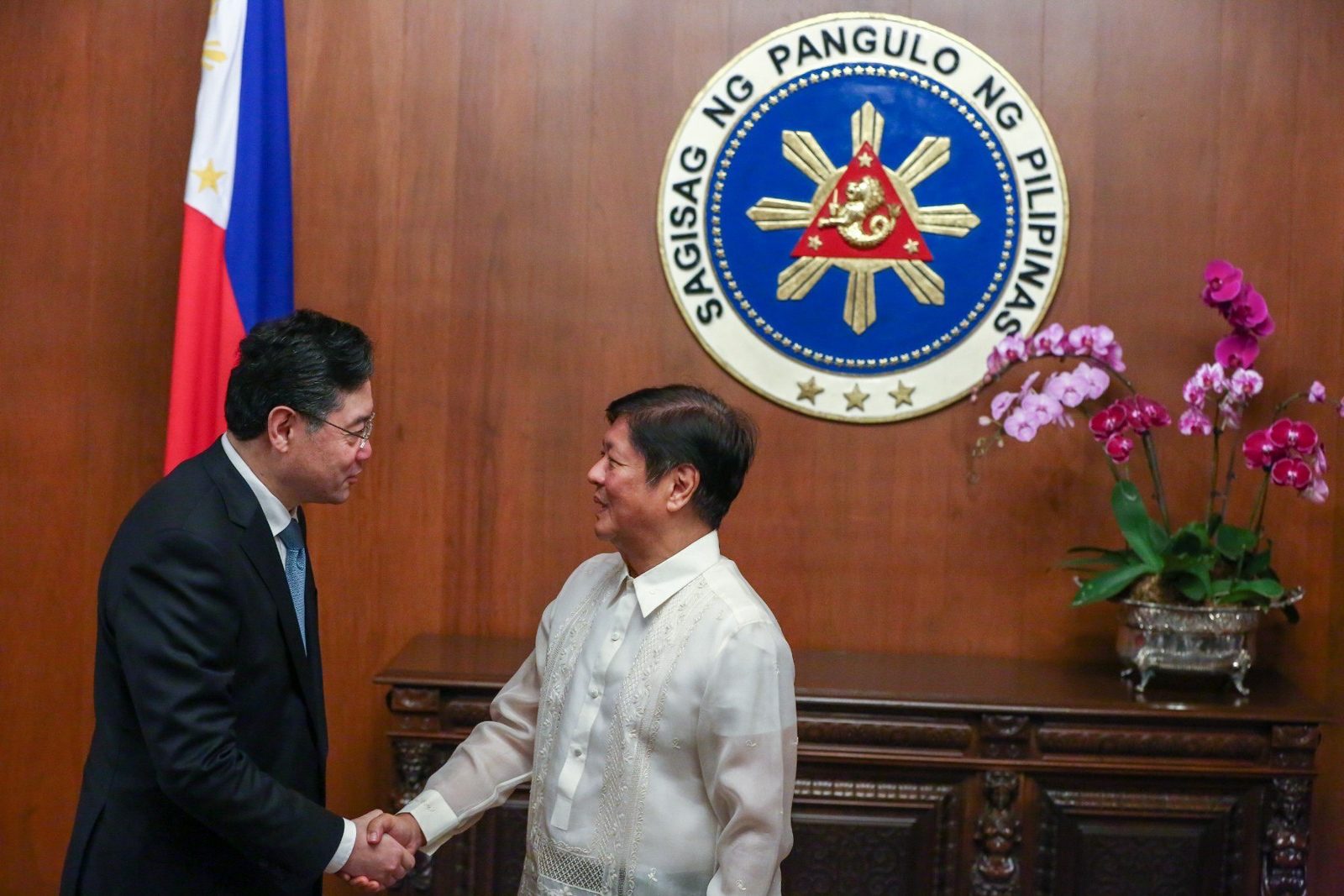SUMMARY
This is AI generated summarization, which may have errors. For context, always refer to the full article.

MANILA, Philippines – President Ferdinand Marcos Jr. on Saturday, April 22, said the Philippines and China had agreed to establish “more lines of communications” to resolve “any event that occurs in the West Philippine Sea” that involves the two countries.
Marcos made the statement following a meeting with Chinese Foreign Minister Qin Gang, who is in the Philippines for a three-day visit. Qin paid a courtesy call on Marcos at Malacañang Palace late Saturday, following a meeting with Philippine Foreign Secretary Enrique Manalo.
Marcos, in a statement released via the Presidential Communications Office, said Qin’s visit was very, very useful and very, very productive.”
“Some of the pronouncements that have been made recently by our two countries and many other countries might be misinterpreted,” said Marcos in his statement.
Days prior, China’s top envoy to Manila, Ambassador Huang Xilian, sparked controversy after he publicly advised the Philippines to “unequivocally oppose ‘Taiwan independence’ rather than stoking the fire by offering the US access to the military bases near the Taiwan Strait if you care genuinely about the 150,000 OFWs.”
In response, Marcos came to Huang’s defense by saying his statement was just “lost in translation.” Huang joined Qin and other top Filipino and Chinese officials during the meeting in Malacañang.
Huang’s controversial statement was in response to the Philippines’ decision to open up four more military bases – many of which are close to Taiwan – to the United States under the Enhanced Defense Cooperation Agreement.
Democratically governed Taiwan is growing to be a flashpoint for conflict in the region as China claims it as its territory. The US has said it would defend Taiwan in the event of an attack.
China has criticized the US for supposedly increasing tensions in the region through its military presence. Marcos, meanwhile, had said it was “hard to imagine” the Philippines not getting involved should tensions in Taiwan rise.
Unlike his predecessor, Marcos has seemingly embraced the Philippines’ ties with the US, its longtime treaty partner.
The “largest” Balikatan – annual military exercises between American and Filipino troops – wrap up by the end of April. Then, on May 1, Marcos is set to visit the White House for a bilateral meeting with US President Joe Biden.
At the same time, Marcos has made it a point to maintain good ties with China, too. He flew to Beijing in early January 2023 for a state visit, during which the Philippines and China signed a deal “establishing direct communication between the foreign ministry of both country at various levels” to avoid mishaps in the West Philippine Sea.
Despite these efforts, China’s aggression in the hotly contested waterway has seemingly only intensified. Manalo had said that Chinese harassment in the South China Sea has become a “daily situation.” – Rappler.com
Add a comment
How does this make you feel?


![[Just Saying] SONA 2024: Some disturbing points](https://www.rappler.com/tachyon/2024/07/TL-marcos-sona-points-july-23-2024.jpg?resize=257%2C257&crop=335px%2C0px%2C720px%2C720px)


There are no comments yet. Add your comment to start the conversation.